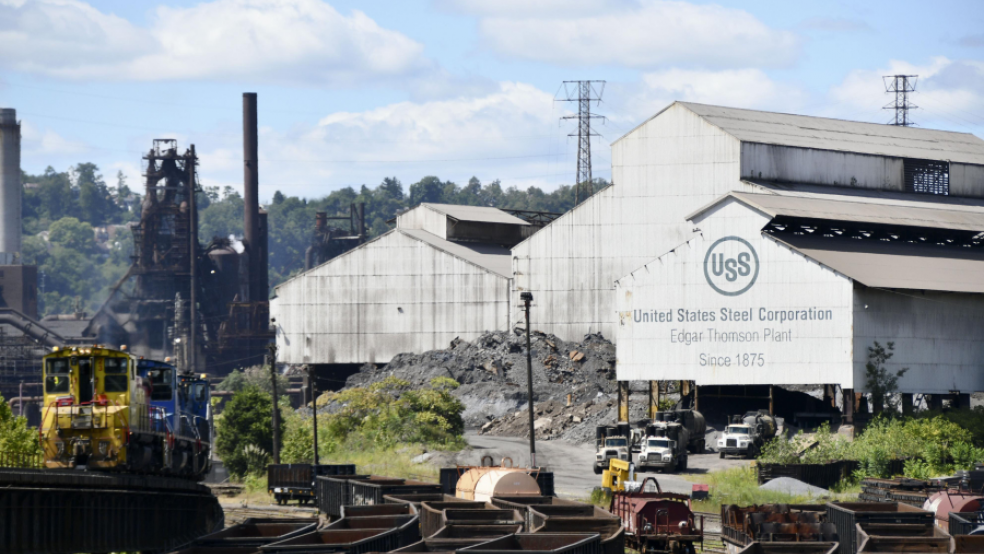Once again wading into international economic affairs more than a month before taking office, President-elect Donald Trump vowed on Monday night to block the acquisition of U.S. Steel by Nippon Steel of Japan.
“I am totally against the once great and powerful U.S. Steel being bought by a foreign company,” Trump said on his social media platform. “Through a series of Tax Incentives and Tariffs, we will make U.S. Steel Strong and Great Again, and it will happen FAST! As President, I will block this deal from happening. Buyer Beware!!!”
Nippon Steel announced last year that it intends to acquire U.S. Steel for $14.9 billion, sparking protests from both Democrats and Republicans worried about the potential national security implications of foreign ownership of a key part of the nation’s industrial base.
Earlier this year, President Joe Biden announced that he opposed the sale, saying in March that “U.S. Steel has been an iconic American steel company for more than a century, and it is vital for it to remain an American steel company that is domestically owned and operated.” A final decision on the fate of the proposed deal is awaiting the result of an ongoing review by the Committee on Foreign Investment in the U.S., an interagency panel run by the Treasury Department that can recommend that the president block an asset sale based on national security grounds.
Steelworkers are divided on the proposed acquisition. David McCall, international president for United Steelworkers, said earlier this year that Nippon Steel could damage the U.S. steel industry by importing key components from Japan and China, which suffer from excess capacity. “This is just a first step in a long-term reduction and destabilization of the U.S.-based steelmaking processes that will eventually lead to the United States being reliant on imports of slabs and hot band material critical to infrastructure and national defense,” he said in June.
But some workers at U.S. Steel say they think Nippon offers the best hope for the future, since the Japanese firm seems to be in better financial shape than Cleveland-Cliffs, another suitor based in the United States. Jack Maskil, a vice president at the Steelworkers local branch in West Mifflin, Pennsylvania, told the Associated Press that U.S. Steel “provided a very, very good life for our families for a lot of years.” At the same time, his workers feel that the Nippon deal means that “a lot more families for futures to come will be able to share the same.”
In a statement, Nippon said its purchase of the American steel giant would offer no threat. “Nippon Steel is determined to protect and grow U. S. Steel in a manner that reinforces American industry, domestic supply chain resiliency, and U.S. national security,” Nippon said, per CNBC.
Earlier this year, Wilbur Ross, the American businessman who served as commerce secretary in the first Trump administration and whose private equity company rolled up bankrupt steel companies into the International Steel Group, which was then sold to Luxembourg-based Mittal Steel, also expressed support for the acquisition, charging that opposition to the deal stems largely from xenophobia.
As for the brighter future promised by Trump for a U.S. Steel that remains in American hands, the president-elect provided no further details. In his successful bid for a second term, Trump vowed to impose tariffs on Chinese imports, which could benefit the U.S. steel industry, though the details still need to be hammered out. Trump also pitched tax cuts for companies that maintain production in the U.S., which could give domestic producers a boost to their bottom lines, assuming Congress is willing to provide those cuts in new legislation next year.

